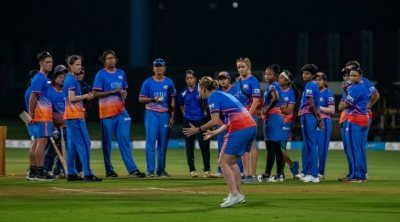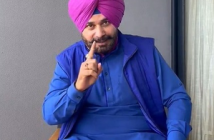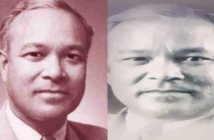By Niharika Raina
New Delhi, March 4 (IANS) Ahead of the first-ever Women’s Premier League (WPL) match between Gujarat Giants and Mumbai Indians at DY Patil Stadium in Navi Mumbai on Saturday, former India cricketer Reema Malhotra recalled an incident from her initial playing days over unfulfilled cricketing aspirations of her peers.
“I once said to a player’s father, ‘uncle, there’s women’s cricket, please let her play’. He would retort back with, ‘What is the financial security? Even if you win, what will you get and who would recognise you’?”
“I saw this myself as had two-three friends who played really well. But their parents never supported them and their careers got over at the college level. The dreams they had, if they had got that bit of support, they could have been fulfilled,” she recounts to IANS.
Cut to now, and Reema sees immense hope, career as well as financial wise, for a female to have a bright future as a woman cricketer in India. “Through WPL, now a parent will feel that if their girl wants to be a cricketer, let them be free and play the game. WPL is bringing in ads, publicity, money and other players apart from Smriti, Harman, Mithali, Jhulan will be household names.”
“Also, they will get financial support. I know of many players who are financially weak and were very delighted on getting WPL contract. They didn’t have desires of buying iPhone or car; they wish to build a pucca house for their parents and give a good lifestyle to them, which is very heartwarming from an emotional point of view. WPL is a dream in itself for every woman cricketer in the country.”
When the inaugural WPL player auction happened on February 13 in Mumbai, the lives of many cricketers, especially in the domestic arena, changed through deals going into lakhs of rupees. Reema thinks the money being offered to women cricketers via WPL can bring a societal change about how the sport is viewed in India.
“Firstly, many parents and most of their families weren’t supportive of girls playing cricket. But there’s been a difference in the last two-three years, parents are bringing their girls to play the game as they can see a future.”
“There’s change coming through since 2017 and then pay parity. So through WPL, the BCCI is giving a platform in WPL where you are given matches and are being equally paid, giving parents a signal that you can invest in your girls’ future.”
In the last few years, a miniscule talent pool of women cricketers in India was cited as a chief reason behind the delay in launching WPL. But now, with India winning inaugural U19 Women’s T20 World Cup and WPL set to happen, that talent pool shows promising signs of exponential growth.
“Now everybody will be wanting to send their children to playing cricket, because firstly it becomes so marketable. Secondly, now everybody is watching, so there’s a lot of publicity. Women’s cricket is now becoming a lot like men’s cricket in terms of viewership, So there’s more knowledge about the sport. In my common circle, all my friends and cousins who never spoke about women’s cricket, are now talking about it, and the WPL.”
“It is perceivable that WPL is the best thing to have happened to the sport in India and will serve to improve the game by leaps and bounds. Many people who would follow men’s cricket and rarely saw women’s cricket, they all are into it now. The audience will grow now, not only in terms of viewership wise, but participation as well. We are hoping that WPL will be a success, but we should not be in a hurry as men’s IPL took two-three years to come of age,” says Mamatha Maben, former India captain, to IANS.
Reema, who calls herself fortunate to have a family which supported her cricketing ambitions and quest to represent India for nearly a decade, reveals getting many requests from parents wishing to enroll their daughters in cricket academies in the last few years due to a mindset shift.
“Now, parents are bringing their girls and are insisting on them practising alongside boys. On one occasion, I had to even stop a parent from enrolling their four-year old daughter, saying let her be a little grown-up. The excitement which was observed for men’s cricket, is now being seen for women’s cricket too mainly due to change in mindset of parents.”
“It is easy to change the mindset of a player for making it to the top level, but in every household, the concept of a daughter taking up cricket as a career is gaining ground. Like, you don’t necessarily have to choose a suffix like doctor, engineer, or a badminton player as a career, you can put a slash and add ‘cricketer’ to someone’s name. You now have a future and financial security by being a cricketer. For me, this change coming through WPL is a huge switch off-field wise.”
Mamatha also hopes the vast money coming from WPL for the BCCI is invested in growth of domestic cricket, especially at the grassroot level, and helps in talent retention too. “In Australia, even for their province players, they are heavily looked after. Even for the juniors too, and they have equally distributed their resources, and have not kept it to the cream.”
“That is what should be seen and the next target is to make it financially viable for players at the state level. Then we will definitely retain talent and with WPL coming, it will give players who couldn’t make it to the state team another window of opportunity and can hold on for some more time before looking elsewhere.”
“That apart, all girls themselves are going to be interested, so more people will come in the sport. Let’s say, 100 were coming; it’s going to increase tenfold at least. This is what I feel and then from there, its going to be all organic, just like how men’s sport is. Now that BCCI has a corpus of their own for women, they themselves are going to make sure that it’s channeled in the right direction for development of the game.”
Even before the first ball of WPL is delivered, it is already showing enormous potential of transforming women’s cricket in India, and the lives of many cricketers who are going to benefit hugely. “This WPL is a dream which many girls and us had seen for a long time. I will call March 4 a historic day as we have been talking about it since the announcement came and then formation of teams happened.”
“When you step on the field on March 4, and the tournament begins officially, that for me will be a historic moment. It is going to be the biggest moment of my life, as well as in the lives of other girls,” adds Reema.
“Though we should not be in a hurry and give it 2-3 years’ time, WPL will catapult us to where we need to be going as a sport. I am very excited and just so bubbling with joy for the game. For all who have been associated with the sport, it was a struggle. For everything, we had to convince and now to see all those things coming on its own, it’s the greatest joy I have,” concluded Mamatha.
–IANS
nr/cs




